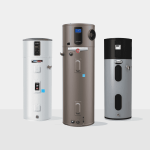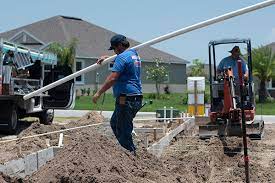Dirty drains are more than just a nuisance. Without regular cleaning, they can cause serious damage to your home and health.
The good news is that there are some easy ways to clean your drains at home. These methods are safer than chemical drain cleaners and are just as effective.
Clogged Pipes
When it comes to plumbing, our worst nightmare may be sewage backs up into toilets, bathtubs or sinks caused by a clogged drain pipe. This can result in expensive damage to the septic or sewer system as well as our homes. If you can’t clear a clogged drain with plunging, poking around and other DIY methods, it might be time to call in the professionals.
In the meantime, you can try a variety of natural drain cleaners that won’t harm pipes or the environment. One recommendation is Bio-Clean, an all-natural enzyme product that eats away at clogs without hurting the pipes. Another is simply pouring hot water, baking soda and vinegar down the drain, waiting a few minutes and then running more hot water. If these don’t work, try using a wire drain snake to break up or hook the clog for removal. If you don’t have a wire drain snake, you can also use a bent wire coat hanger to fish out clogs.
Bad Odors
If you’ve recently moved into a house that was previously occupied by smokers, you may notice strange odors wafting from your drains. Despite your best efforts, these smells can linger and cause you discomfort. If this is happening to you, a professional drain cleaning can eliminate the problem and leave your home smelling fresh.
There are several kinds of drain cleaners on the market, including natural (enzymatic) and chemical cleaners. Many enzymatic cleaners are environmentally friendly and contain bacteria that can break down and dissolve clogs safely. However, they are slower to work than chemical cleaners.
You can also make your own non-toxic, environmentally friendly, and effective drain cleaner at home using baking soda and vinegar. This thrifty, simple recipe uses ingredients you probably already have in your kitchen. Combine one cup of baking soda with half a cup of vinegar and pour it down your drain. Let it sit for about an hour, then flush with boiling water.
Bacteria and Mold
Mold is a common problem that affects homes in many ways. It can cause respiratory problems, allergies and other health problems, depending on the species and a person’s susceptibility to them. It also can damage materials from wood rot to air conditioning units.
It grows anywhere there’s water and a food source, which is usually organic matter like cotton, leather, paper products and some wood. It spreads by releasing spores, which travel through the air and land on damp surfaces, where they grow.
There are several ways to get rid of mold, including cleaning with a dehumidifier and fixing the moisture source. For example, a solution of water and 3% hydrogen peroxide can kill mold on non-porous surfaces. Tea tree oil can also help because it has a chemical, terpinene-4-ol, which studies show inhibits fungi growth. Baking soda is another natural option that can be used to scrub surface mold from non-porous surfaces. It’s also an effective disinfectant.
Water Damage
The bacterium and mold that grow in standing water can cause serious health problems for you and your family. The best way to avoid this is by ensuring that your drains are working properly and scheduling regular drain cleaning services.
A drain cleaner uses either a caustic or oxidizing chemical to break down the organic materials that create clogs and other issues. These chemicals are poured directly into the drain and a chemical reaction with the clog dissolves or dislodges it. The chemicals are safe for your pipes and can be used on a regular basis to prevent future blockages and slow draining.
Slow-draining sinks, toilets and gurgling sounds are surefire signs that your drains need to be cleaned. While plunging can loosen and break up some clogs, professional drain cleaning is the best way to remove organic material from your pipes before it causes blockages, backups, odors, bacteria, and other health issues in your home.









